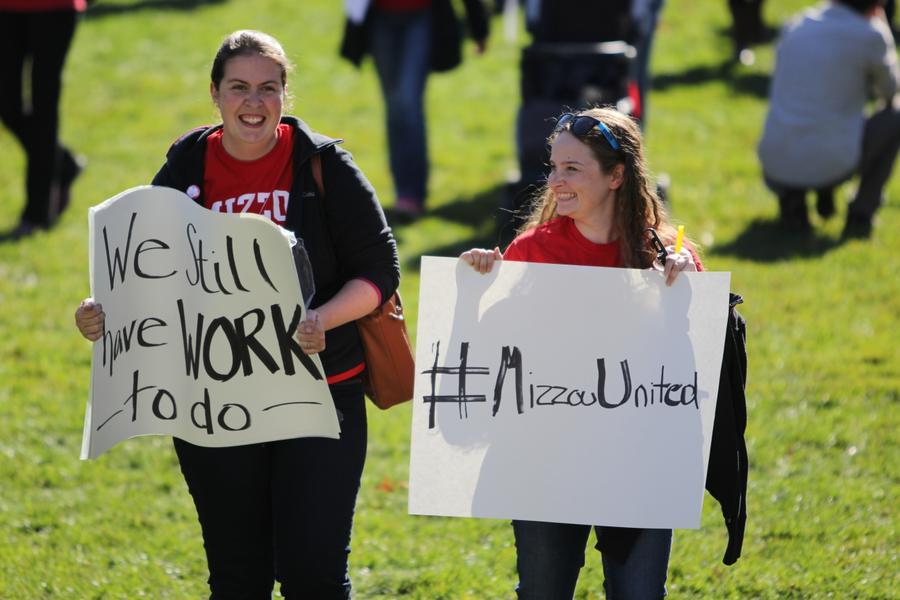The Forum on Graduate Rights wants their student health insurance subsidies back, and they want them now.
Following the Task Force for Graduate Health Insurance’s [report Nov. 16](http://gradstudies.missouri.edu/financials/student-medical-insurance/Grad%20Student%20Ins%20Task%20Force%20Final%20Report%2011-17-15.pdf), the graduate student group [released a statement](http://www.mugradrights.org/statement-on-task-force-report/) Dec. 11 expressing their dissatisfaction with MU’s health insurance solutions.
“After careful consideration of the three solutions proposed by the Health Insurance Task Force, the steering committee of the Forum on Graduate Rights has concluded that all three would leave graduate students materially worse off than under our current subsidy plan,” the Forum on Graduate Rights statement said.
The task force’s report outlined recommendations for legally providing healthcare to graduate students.
The recommendations in the report included increasing students’ stipends they receive for their graduate work so that they would not be linked directly to the purchase of health insurance, providing fellowships for graduate students, and providing a health insurance plan that would qualify as a “silver” plan under the Affordable Care Act.
In 2014, the IRS redefined student health insurance as “individual coverage” under the ACA. Because of this, MU and other universities legally could not subsidize student premiums for individual insurance policies. Doing so created a “group health plan,” which violated the ACA. Previously, MU had been providing graduate students with health insurance that was equivalent to a “gold” plan under the ACA.
Both the proposed fellowship and increased stipends would be included in the students’ salaries, meaning they would be taxed. Although the task force suggested that the fellowship funds be increased to account for the tax burden, it states that only $3.72 million would need to be allocated for that purpose, whereas last year MU spent $4.3 million on subsidies, [according to previous Maneater reporting](https://www.themaneater.com/stories/2015/8/16/forum-be-held-changes-graduate-student-health-care/).
Connor Lewis, a doctoral student in the history department and a Forum on Graduate Rights steering committee member, said these solutions are comprised of two concrete, short-term solutions that are, ultimately, taxed income, and one long-term solution, which is worse health care.
“That isn’t employer-provided health care,” Lewis said. “We’re going from having health care to not having health care.”
Lewis said that MU may not be doing enough research to look for ways to continue giving students insurance subsidies.
“What we would like to see is the current subsidy plan continued,” Lewis said. “We’re asking the university to look into legal ways of doing that, like other universities have done.”
While compiling information for their report, the task force contacted peer institutions (defined as other schools in the Southeastern Conference or Association of American Universities) to review their current solutions for graduate students. Of the 12 they contacted, only seven responded. Six of those seven are using student group health insurance plans and one is using an employee plan.
The report said that these institutions’ plans did not offer “a viable alternative to MU’s current plan (a subsidy plan).”
It also said that other universities were hoping to change the IRS definition of student health insurance.
“Anecdotal evidence suggests that many universities continue to lobby at the Federal level for changes to the IRS regulations,” the report read.
The task force also conducted a student survey, in which they discovered that several students found the current insurance plan through MU too expensive. The plan is contracted through Aetna Inc., and includes a $300 deductible. The task force found that most students want broad-coverage, low-cost and accessible health insurance.
Lewis said that Forum on Graduate Rights is [trying to unionize](https://www.themaneater.com/stories/2015/10/28/mu-coalition-graduate-workers-process-unionizing/) so that they have an advocate for their health insurance needs that knows what they want better than MU’s administration.
“We’re hoping that health care will be negotiated through an organized union contract,” Lewis said.














